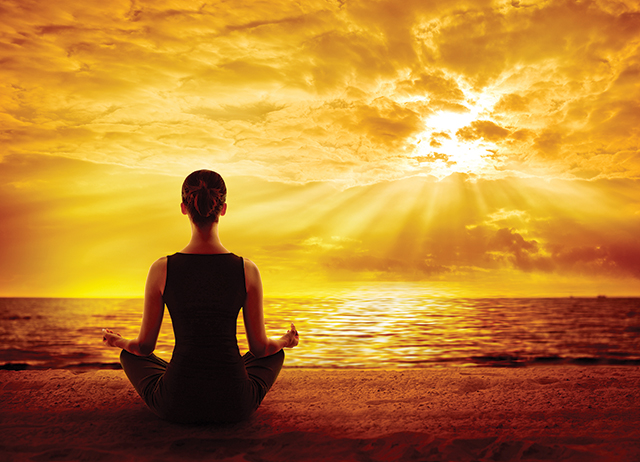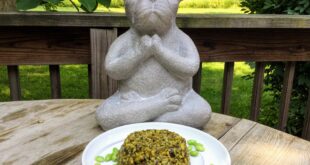
By Jakeb Brock
One of the keys to progressing on the spiritual path is the practice of mindfulness, or getting in touch with one’s higher Self. This is actually the essence of what it means to be conscious.
All of us have an inner core of spiritual consciousness that is immortal and eternal. This spiritual seed, though sometimes lying dormant, never leaves us or ceases to exist. It is not only an integral part of our complex inner kingdom; it is our core essence. In other words, it is our true identity. It is the “us” that constitutes the thread of continuity through each life we live on the earthly plane. In each incarnation on the cycle of birth and death, we find ourselves with a new body and a new mind—a body and mind that render that incarnation experientially unique. But our core essence of spiritual consciousness, while being housed in a unique situational framework, never changes.
What does change from lifetime to lifetime is the relationship we establish and develop with our core spiritual Self. This is where mindfulness or conscious awareness comes in and can potentially play an important role. Awakening to the immutable spiritual presence within us not only impacts our present earthly experience, but as we embark on the subsequent practice of mindfulness, we find that the seed inside of us begins to grow and expand. As this occurs, our present life experience often changes dramatically. As our sense of identity shifts from its attachment to the temporal aspects of our humanhood—aspects such as body, mind, emotions, and personality—to our core spiritual essence, we begin to emerge from the shadows of the common human dilemma and to enjoy the fruits of eternality. The seed within us quickly becomes a plant with abundant life-giving fruit—fruit that can in turn feed others.
The amazing thing about all of this is that becoming mindful or conscious of our Inner Self and establishing a vibrant connection to it is not the least bit difficult or burdensome. This is what Jesus meant when he said, “For my yoke is easy and my burden is light.” (Matthew 11:30.) Making our way in this world at the behest of an insatiable egoic identity is much more difficult than turning inward and nurturing our spiritual consciousness. Moreover, stimulating the eternal essence of our being is the way of peace and harmony with the universe, while serving the temporal ego is the way of division, strife, and separateness.
Wherever we are in our present life situation can be a starting place for practicing mindfulness. We do not need to rearrange our circumstances or involvements to get started. All we need to do is to set aside a quiet time each day to go inward and connect with our spiritual core. This connecting is called mindfulness because what we are doing is using our human mind as an avenue of spiritual awareness to observe the activity of our inner world and dig down through the various layers of inertia and distraction, until we reach the center of our being. Somewhat paradoxically, we use our mind to cut through what is mostly mental inertia.
Consciousness occurs when we touch our center. This experience is also called enlightenment. The instant we make that contact it is as if a light goes on—a light that illuminates our entire inner world. This light exposes all of our strictly temporal thoughts and emotions as nothing more than a kind of static interference. As these are exposed for what they really are, our identification with them weakens.
Unconsciousness is a state of total unawareness of these temporal inner workings. The conditioning of modern human life—conditioning that begins at birth and continues steadily and inexorably throughout our lifetime—has brought about a proliferation of temporal thought and emotion that happens all on its own impetus. We do not need to do anything; it happens automatically. We do not even need to pay attention to it. So, we learn to put our inner workings on autopilot. We cease from any inclination towards awareness. Essentially, we go to sleep.
The problem is that while we are sleeping in this unconscious state a slew of negative influences is seeping into our psyche and having its way with us. These are the natural elemental influences of the earthly plane, such as sin, fearful dualistic thinking, karma and world mesmerism. That is why the human scene is so full of suffering and misery. Unconsciousness is epidemic among us, which in turn renders us vulnerable to the elemental activity of the earthly plane and leads to one situational problem after another. It is truly a progression that speaks of devastation.
The antidote to unconsciousness is, of course, consciousness. As the New Testament exhorts: “Wake up, O sleeper, rise from the dead, and Christ will shine on you” (Ephesians 5:14.) Before we can reverse the devastations of unconsciousness we must awaken. We must become aware of all of the inner activity that has been going on by rote. We must recognize the role that conditioning has played in this proliferation of temporal thought and emotion. We must relinquish our former attachment to identifying with ourselves with this unconscious train. How can thoughts and emotions that have been set in motion through psychological conditioning be who we really are? Do they not belong rather to some amorphous cultural clone?
No, who we really are is spiritual consciousness, and this essential “us” can never die. It is alive within us at this very moment, just waiting to be fanned into the flame of full conscious realization. Therefore, the testimony of eternal life that awaits us is truly glorious. Not only is it a testimony of one lifetime’s fulfillment and fruition; it is the testimony of liberation from the cycle of birth and death and the ultimate deliverance from the negative influences of the earthly plane.
Jakeb Brock is the author of The New Consciousness: What Our World Needs Most. For more information and to order a copy of his book, please visit www.ournewconsciousness.com.
 Conscious Community Magazine Dedicated to Elevating Consciousness
Conscious Community Magazine Dedicated to Elevating Consciousness




